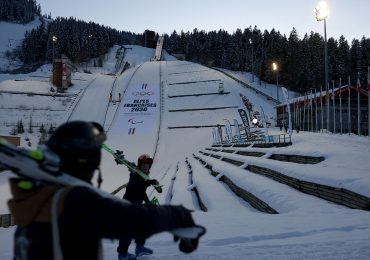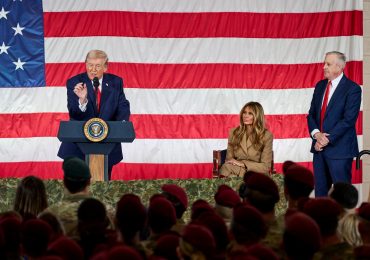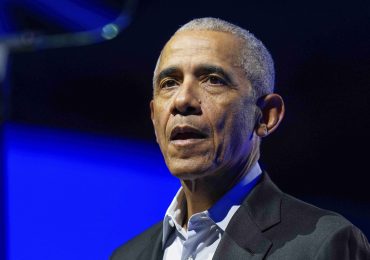CHINA has urged both Iran and Pakistan to show “restraint” after Tehran launched a “unprovoked” strike at its neighbour that killed two kids.
The seemingly timid reproach by Beijing appears to be an attempt to douse the flaming tensions exploding across the Middle East that are now spilling closer to its home turf.
ReutersBeijing looks to be nervously watching the powder keg of the Middle East and fears a new front opening up between Iran and Pakistan[/caption]
RexIranian Supreme Leader Ayatollah Ali Khamenei is pictured as Iran withdrew its claims that it was responsible for Tuesday’s attack on Pakistan[/caption]
“We call on both sides to exercise restraint, avoid actions that would lead to an escalation of tension and work together to maintain peace and stability,” China’s foreign ministry spokeswoman Mao Ning said.
“We consider both Iran and Pakistan as close neighbours and major Islamic countries,” she said.
Both Tehran and Islamabad are close partners of Beijing and members of the Shanghai Cooperation Organisation – a China-led political, economic and defence alliance.
Beijing appears to be fearful of a new front opening up between its two allies that could escalate the Middle East crisis – a powder keg unsettled by Israel’s ongoing war against Hamas and Iran-backed Houthi rebel attacks in the Red Sea.
Late on Tuesday, six Iranian bomb-carrying drones and rockets struck the homes of militants belonging to the separatist militant group, Jaish al-Adl (Army of Justice).
The group claimed the strikes killed two children and wounded two women and a teenage girl.
Unverified videos allegedly from the scene of the attack showed a burning building and two charred, small corpses.
Iran’s state media said its warped terrorist army, the Iranian Revolutionary Guard (IRGC), carried out strikes on the headquarters of Jaish al-Adl – but later withdrew the reports.
Pakistan blasted the “unprovoked” attack as “completely unacceptable” and a “violation” of Pakistan’s sovereignty.
However, both sides appeared wary of further provoking the other.
There were signs nuclear-armed Pakistan was trying to contain their anger over the strike, with the country’s typically outspoken and nationalistic media covering the strikes with unusual restraint.
Iran has offered no immediate official comment.
Tehran has been fighting Jaish al-Adl in border areas, but a missile-and-drone attack on Pakistan is unprecedented.
Formed in 2012, the separatist Sunni militant group is blacklisted by Iran as a terrorist group and has carried out several attacks on Iranian soil in recent years.
Iran suspects that Sunni-majority Pakistan is hosting insurgents, possibly at the behest of its regional arch-rival Saudi Arabia.
Jaish al-Adl has claimed past bombings and kidnapped members of Iran’s border police.
In December, suspected members of the group killed 11 people and wounded eight others in a nighttime attack on a police station in southeastern Iran.
Meanwhile, Pakistan has blamed Iran in the past over militant attacks targeting its security forces.
It comes as Iran launched missile attacks on “spy headquarters” and “terrorist” targets in Syria, and in Iraq’s autonomous Kurdistan region.
Last weekend, Foreign Secretary Lord Cameron warned: “It is hard to think of a time when there has been so much danger and insecurity and instability in the world.
“The lights are absolutely flashing red on the global dashboard,” he told Sky News.
His comments come as experts also warned The Sun that the world is facing its “most dangerous and volatile moment” in history.
It’s feared Russia, China, the Middle East, Iran and North Korea are all major flashpoints for an all-out world war – and British troops could be dragged into the mess.
On Monday, a leaked German military report showed Putin’s ten-step plan to bring the West to the brink of World War Three.
The secret documents described Putin’s possible “path to conflict” which would reach its climax in 2025 on “Day X” when half a million Nato and Russian soldiers face each other.
The bombshell files, obtained by Bild from Germany’s Ministry of Defence, laid out exactly how the Kremlin boss might prepare for a hybrid attack on Nato as early as next winter and a full-blown war next summer.
Ex-British tank commander Colonel Hamish de Bretton-Gordon told The Sun that while the chilling war plans are a “worst-case scenario”, they are “absolutely possible”.
He said: “We are in probably the most dangerous and volatile place in the world than we’ve been… I can’t even think of a time in the Cold War.”
Tensions have been flaring in the Middle East amid Israel’s war with Hamas and Houthi (pictured) attacks in the Red Sea
Iran-backed Hamas terrorists have spent months battling Israel in the Gaza Strip
Pakistan blasted Iran’s strike on Tuesday as a ‘violation’ of the country’s sovereignty
Leave a comment








